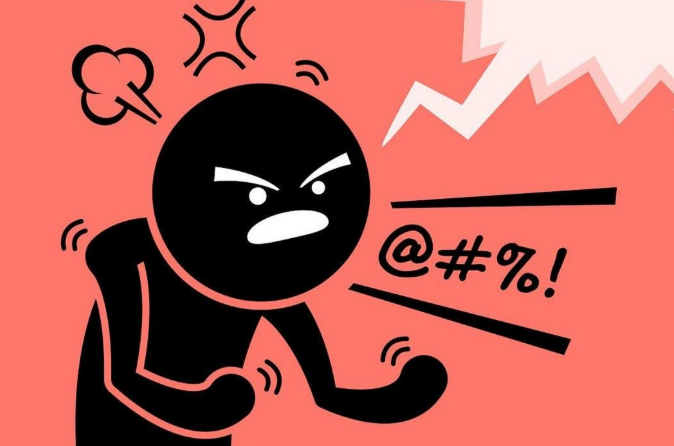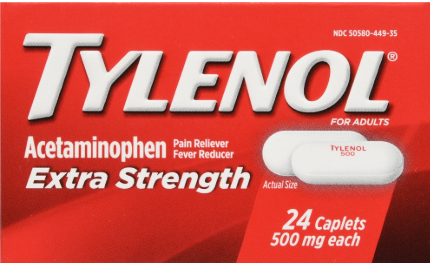Call me a saint, but I HATE swearing. It’s unnecessary, and we were told not to do it since we were kids. But as people grow up and “mature”, these rules are replaced with the notion of freedom of speech, one of the many blessings and curses in modern American society. The child has become a man, and the man has begun to curse. But when has this corrupt form of speech ever been useful? Has it ever served a function other than to degrade other human beings? Why has it come to the point where it dilutes any meaning present in someone’s expression? Is there a proper way to swear? And was there ever a proper way to swear? Let’s look into it.
Origins:
Before diving into how swearing is shaping media into a cesspool of negativity, I would like to first acknowledge its humble beginnings and what it is exactly. Simply put, profanity is the verbal expression of violence and aggression. According to Sigmund Freud’s Psychoanalytic Theory, swearing falls under the category of expressing Thanatos, or the death instinct. This is essentially the natural human drive to release aggression by means of destruction. Freud would even go on to say that this counteracts Eros, the instinct of life and self-preservation, to create a balance within the human psyche. Aggression is the natural output of said Thanatos. Reflecting this anger inwards is self-destructive and can lead to serious mental health problems if disregarded. According to Freud, it is only natural for humans to get angry and release it by different means, one of them being profane rhetoric.
Now, swear words have undoubtedly evolved since ancient times. There is no definitive origin of the words we seldom or often use today, but it ultimately stems from the Old Testament of the Bible. Not only does it introduce the concept of using the Lord’s name in vain, which pretty much sums up all of the G-words we know today, but it also shows through various contexts how people literally curse in a declaratory fashion, in which they request a divine intervention to bring about negative consequences upon another individual or nation. As we know and understand today, this is somewhat of an obsolete definition of swearing, but it does show us why it is that we curse: to bring about harm upon other individuals. Albeit it is not the most effective way to do so, and objectively speaking, it is inefficient if the intent is to hurt another person. So we come back to the question: why do we curse?
There are different types of swear words, including seemingly innocuous phrases or more serious, xenophobic offenses targeted towards certain races, genders, or other groups. The latter is pretty agreed-upon as being taboo, but, as mentioned before, people still use them as a way of enacting aggression and hate towards others. In modern media, singers, actors, and influencers have used other swear words in their rhetoric. For some, it is a force of habit, and for others, it is used to “elevate” their language in a comedic or emphatic way. In the mainstream, swearing is very prevalent in many cases, from R-rated comedies to popular hip-hop songs. Now, I am not here to necessarily argue that swearing in all cases is “bad” since ultimately, we can not control what somebody else says. However, I stand by my belief that swearing done incorrectly can dilute the meaning of what an artist is attempting to say.
“How to Swear”:
At first, I thought it was an issue related to the frequency of swearing. This covers about 90% of media in which swearing dilutes the message. But in some cases, over-swearing is the message in and of itself. Take Whiplash and The Wolf of Wall Street, for example. These films have swearing to such an excessive degree that they make you flinch when certain characters engage in dialogue. Their unrestrained, cartoonishly vulgar speech captures the attention of the audience from the get-go. But in these cases, this hyperbole actually contributes to the themes of each respective film. In Whiplash, it’s used as a means of demonstrating Terrence Fletcher’s strict and unrestrained qualities that contribute to the mental decompositions of certain characters. In The Wolf of Wall Street, which actually has the most recorded f-bombs in a film ever, it’s used to convey the wildness and vulgarity of the characters’ speech and lives.
In other films, however, it could bounce right off the viewer’s face and just sound outright stupid. One film that comes to mind is Anyone But You, a popular return-to-form rom-com starring Glen Powell and Sydney Sweeney. The film follows the two mutuals as they experience romantic tension at their respective friends’ weddings. While this might not be the MOST vulgar choice to use as an example for over-swearing, in this case, I found that it was one where it detracted from the experience a great deal. This film and The Menu, I thought, threw around the f-bomb quite freely and extensively to an extent where I began to resent and be annoyed by the characters. The problem isn’t necessarily the words or the occurrences of them themselves, but when and where they are used and placed. And these are just two examples in which I personally found swearing unnecessary. They can range from movies to modern TV to music like Hip-Hop as well. These vexing words, if used at all, should therefore be used sparingly and with precision, and their scarcity makes them all the more satisfying to hear when used in the correct context.
Going back to the Third Commandment, ”Thou Shalt Not Take the Lord’s Name in Vain,” the same principle is displayed advocating against swearing as early as ancient Biblical history. The Lord commands the Israelites to use his name with deference and not to openly use it, as his Holy name holds power and Godly significance. Using it frequently would only diminish its sanctity, which we as people do not have the right to do. Likewise, swear words sit in a weird place in modern vernacular. Arguably, they should not be used, period. BUT, if they must be used, I would much rather that they be used with taste, tact, and strategy to get the absolute best out of them in supporting your rhetoric.








